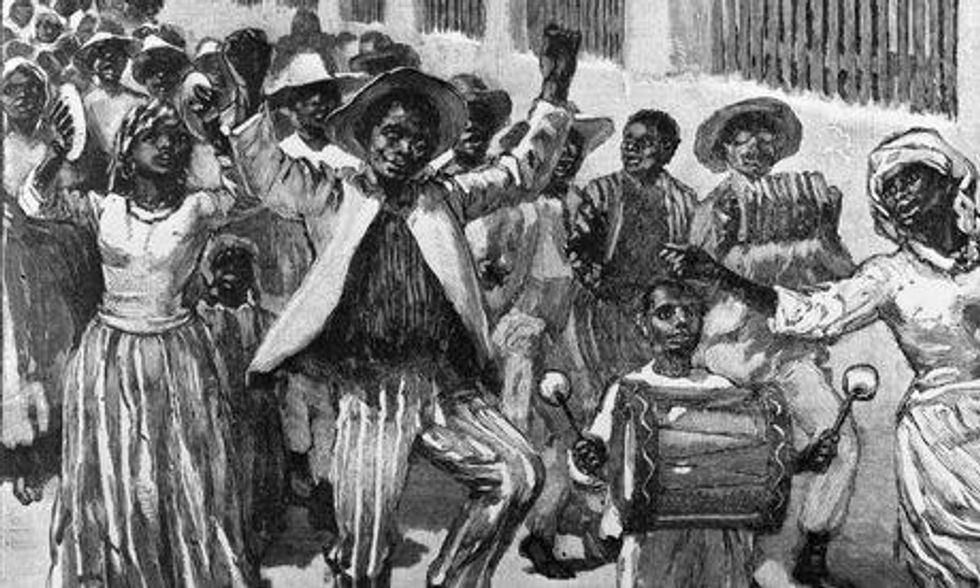The Oscar-winning 12 Years a Slave has opened up new conversations across the region, and what was once considered an unrealistic and unachievable demand now seems imaginable.
Campaigners point to the continuing socio-economic problems that have their roots in the colonial era. They argue that the present-day underdevelopment of the Caribbean is a direct and lasting legacy of the slavery trade, and descendants of enslaved Africans should be compensated for present-day injustices, rather than historical suffering. That the legal case will be difficult to establish is in no doubt; the moral case, however, is less easy to dismiss - especially when the nations of the former colonisers owe their present prosperity to, and are still benefiting from wealth accumulated from the slave trade and slavery. Though whites in the Caribbean represent a minority, they own most of the wealth.
Most of the largest businesses are owned by families who amassed huge fortunes from plantation slavery and, when slavery was abolished, from the compensation paid to them by the British government for the loss of their human property.
By contrast, not a single enslaved man, woman or child received even a penny for the backbreaking toil they endured almost every day of their lives, or for the loss of mothers and fathers, children, brothers and sisters caused by the callous separation of families. There was no compensation for the pernicious brutality exacted against them, or for the violent sexual assaults on enslaved women.
Even today, international trade agreements lock the region into disadvantageous western-imposed tariffs that stifle economic growth. Yet many people across the region harbour ambivalence and antipathy to the idea of reparations. Doing my own mini-research, I am struck by how many reject reparations through what I interpret as a deep sense of shame. It seems people are still coming to terms with a history of enslavement, and many would rather the topic wasn't discussed.
I am reminded of this whenever I visit any of the Jacobean and Georgian-era great houses that are dotted around Barbados. Their foundations were literally built on slavery. Tour guides will wax lyrical about the gracious lifestyles led by the planter families who lived in them. But there is rarely any mention of the armies of enslaved peoples whose forced labour made such living possible, and who are all too often erased from these histories. It is as if islanders attach greater shame to being the descendants of enslaved peoples than the owners of these houses attach to having been the holders of human property.
For me, as a descendant of African forebears stolen from their homelands and forcibly transported to Barbados, the issue of reparations is deeply personal. I am semi-resigned to the fact I will probably never know the African family names of my fore-parents. The family names I carry (Forde on my father's side and Griffiths on my mother's) derive not from any African ancestors, but were almost certainly imposed by a now-anonymous slaveholder.
Last week, I met a white American tourist. She revealed that she was descended from a prominent 17th-century Barbadian planter, though she knew very little of him beyond his name and the parish in which he had owned hundreds of acres and enslaved peoples. We shared an ironic laugh afterwards that I could lay out for her her own genealogy stretching back to the 17th century, yet knowledge of my own family tree begins and ends in the post-slavery era of the 1930s.
I will probably never know with certainty where in Africa my ancestors came from.
But I am not ready to resign myself to accepting the continuing effects of the European genocide against the indigenous peoples of the Caribbean, or of the humans forced to work and die on the plantations of the Americas, and the colonisation and exploitation of the natural resources of the African and Caribbean societies. The effects are deep and enduring, and can be felt at every level of every former colony and throughout the diaspora.
My parents, like thousands of their generation, journeyed from the Caribbean to England. They arrived in the era of estate agent signs that said, "No blacks, no Irish, no dogs". The collective humiliation suffered by people who left behind children and communities to come to work in conditions that many British people found unacceptable and demeaning is, in itself, deserving of compensation.
And as I have wandered around Barbados over the last months, thinking about the connections between the lives of my parents, blighted by prejudice, and the persistent economic, social and cultural poverty that still bedevils Barbados, I believe more and more in the legitimacy of reparations claims.
Professor Beckles, principal of the University of the West Indies, has set out a 10-point framework on which the case should rest. The first of these is a formal apology from all the nations who participated and gained from the trade in human beings. For me, an apology is a start. Not the end.




